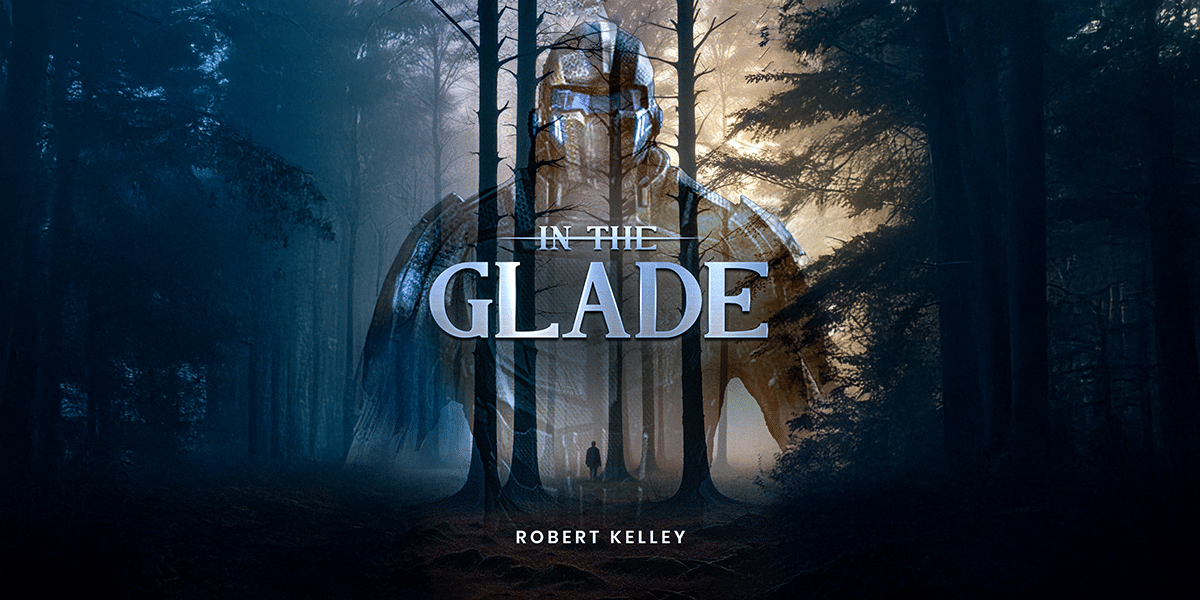By: Jason Gerber
In the book “In the Glade” by Robert Kelley, Brendan’s meeting with a mystifying figure in the woods underscores the essential equilibrium between wonder and reverence in a world drawn to the unknown.
As a young boy driven by a thirst for knowledge and a desire to unravel the mysteries of the universe, Brendan’s journey, exactly chronicled by Robert Kelley, offers valuable insights into the challenges and responsibilities that come with exploring the extraordinary.
From the moment Brendan first stumbled upon the shimmering, otherworldly figure in the glade, he was captivated by its profound and perplexing nature. Like a moth drawn to the flame, his curiosity burned brightly, fueled by a need to understand the entity’s origins, its purpose, and the implications it held for humanity’s understanding of the cosmos.
One of the key lessons that emerges from Brendan’s journey is the importance of approaching the unfamiliar with a sense of reverence and caution.
While his initial instinct was to uncover the truth at all costs, Brendan soon realized that the entity was not merely a subject for scientific inquiry but a being with its own agency and autonomy.
The entity’s steadfast silence and its refusal to engage in direct communication served as a poignant reminder that some mysteries are not meant to be solved but rather respected and honored.
As Brendan navigated the delicate balance between his thirst for knowledge and the entity’s right to privacy, he found himself grappling with the ethical implications of his actions. The realization that the government’s intentions might be more nefarious than they initially appeared, with talk of “containment” and “testing,” only heightened the stakes. Brendan was faced with the dilemma of upholding his duty to the entity while also navigating the complex web of political and institutional agendas.
In this moment of crisis, Brendan’s true character shone through. Rather than succumbing to the temptation of exploiting the entity for personal or professional gain, he chose to prioritize the entity’s well-being and autonomy.
His decision to return to the woods, not with a team of scientists and military personnel, but with his mother Kathryn and government agent James, demonstrated a profound shift in his approach. He recognized that the entity was not merely an object of study but a being worthy of respect and understanding.
Through his interactions with the entity, Brendan learned that true knowledge and connection can only be forged through mutual understanding and trust. The silent language they shared, the gentle touch that bridged the divide between their worlds, spoke volumes about the power of empathy and respect in the face of the unknown. In that moment, Brendan looked beyond the role of a mere observer and became a guardian, a steward of the entity’s right to exist on its own terms.
The lessons imparted by Brendan’s life are not limited to the realm of the extraordinary. They serve as a powerful reminder that in our daily lives, we are often confronted with the unknown, the unfamiliar, and the seemingly inexplicable.
Whether it is a new culture, a different belief system, or an unconventional way of living, the temptation to approach the unfamiliar with judgment and a desire to control can be strong. Yet, it is in those moments that we must heed the wisdom gleaned from Brendan’s experience to approach the unknown with a posture of humility, to seek understanding before seeking answers, and to recognize the inherent worth and dignity of all beings, regardless of their origin or appearance.
As we reflect on Brendan’s journey, we are left with a profound sense of awe and a renewed appreciation for the mysteries that lie beyond the boundaries of our understanding.
The entity’s silent departure, its graceful vanishing into the dawn, serves as a poignant reminder that some things are not meant to be possessed or controlled but rather to be respected and revered.
In the end, it is not the answers we seek that matter most but the lessons we learn about the true nature of curiosity, empathy, and the responsibility that comes with exploring the extraordinary. To learn more lessons, read “In the Glade“ by Robert Kelley.
Published By: Aize Perez


















